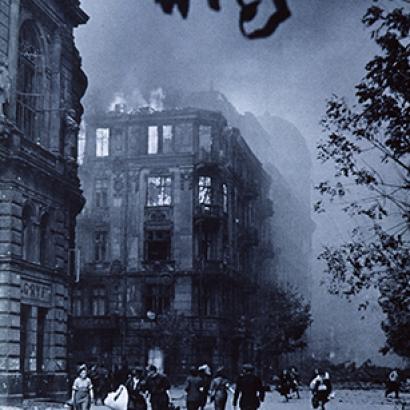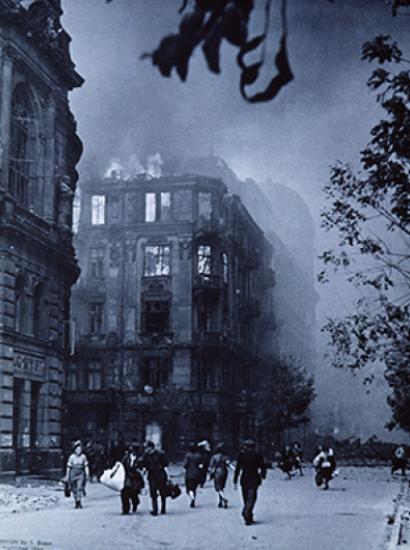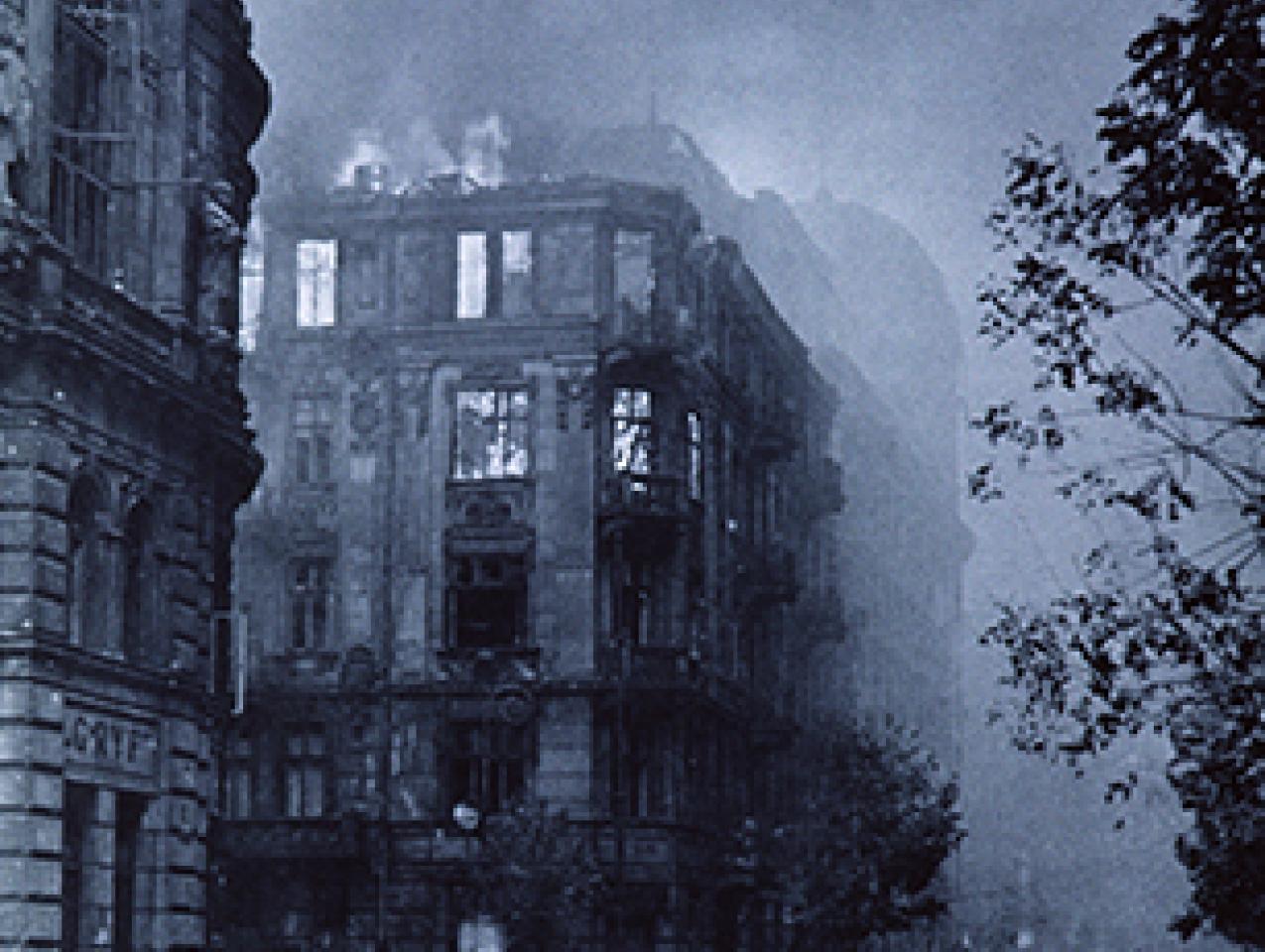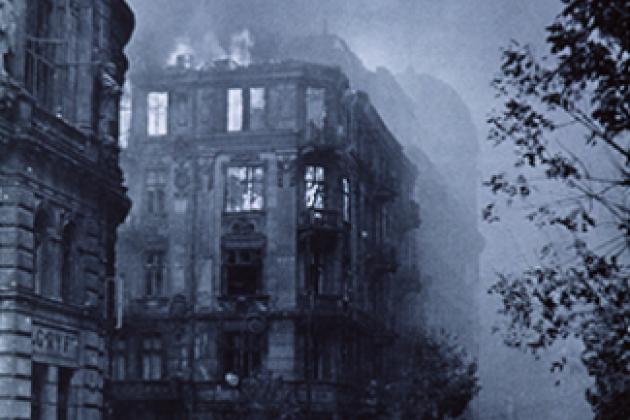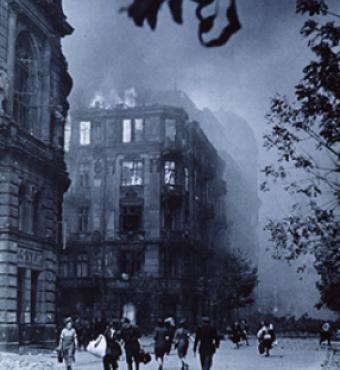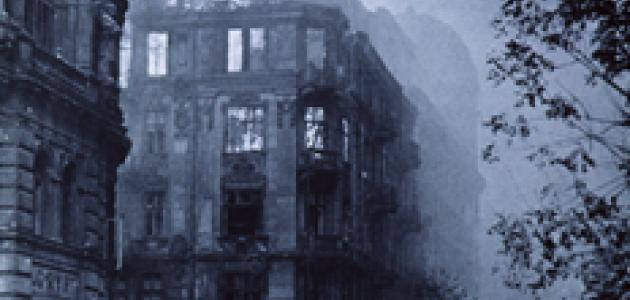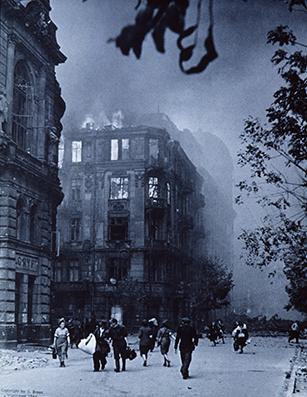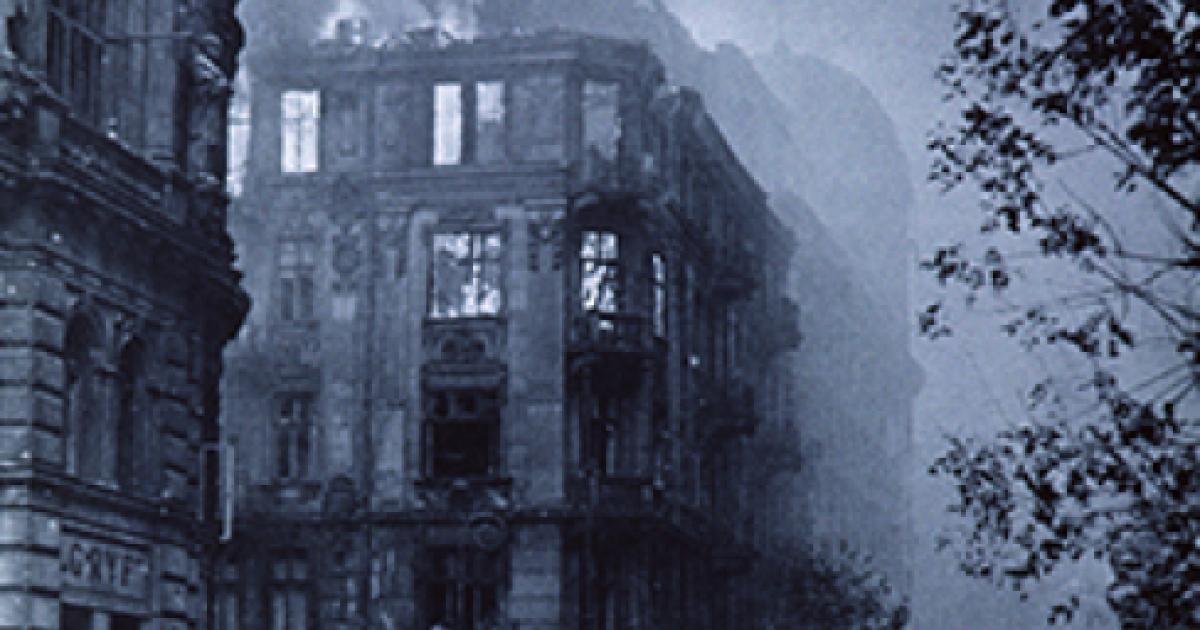- History
- Military
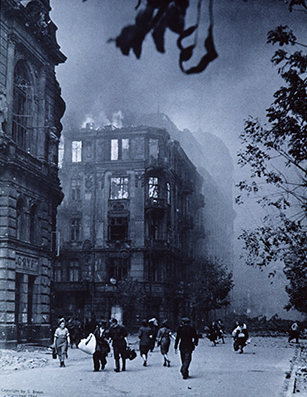
Simcha Rotem, one of the last-known surviving fighters in the Warsaw Ghetto Uprising of April-May 1943, died in Jerusalem on December 23, 2018, aged 94. His death prompted a good deal of global coverage, since the story of the Ghetto Uprising—not to be confused with the Warsaw Home Army Uprising of August-October 1944—is an integral one to the story of Jewish resistance to the Nazis during the Second World War.
Rotem’s nom de guerre was “Kazik,” and he was 19 years old when the SS moved into the Ghetto on April 19, 1943, choosing the eve of Passover with their unerring sense of blasphemy and desecration. Yet they were not prepared for what came next, when a people already terribly malnourished by three and a half years of wartime restrictions rose up and killed 16 German soldiers, wounding 200. Although the SS razed much of the Ghetto to the ground, the Jews continued their resistance for almost a month.
“Kazik fought the Nazis, saved Jews, immigrated to Israel after the Holocaust, and told the story of his heroism to thousands of Israelis,” the Israeli prime minister, Benjamin Netanyahu, said on hearing of Rotem’s death. “His story and the story of the Uprising will forever be with our people.”
“Right at the beginning, when I saw the mass of German forces enter the ghetto,” Rotem recalled, “my initial reaction—and I guess I wasn’t alone in this—was one of hopelessness. What chance did we have with our miserable supply of firearms to hold off this show of German force with machine-guns, personnel carriers and even tanks? … An absolute sense of powerlessness prevailed.” Yet they made every bullet count.
Rotem served as a liaison between bunkers and took part in the fighting, before arranging for the escape of around eighty of the last survivors through Warsaw’s extensive sewer system. He managed to escape the city and continue resistance in the Polish forests, before returning in August 1944 to take part in the Home Army Uprising. After the war, he emigrated to Palestine. He became a member of the Yad Vashem committee and on the Uprising’s 70th anniversary was honored by Poland for his role in the war.
The sheer desperation of the fighting in the Ghetto Uprising rarely saw any equal during the entire conflict, and the obituaries of heroes like Simcha Rotem (“Kazik”) are good opportunities to remind ourselves of such extraordinary moments in military history.
Andrew Roberts’s Churchill: Walking with Destiny is published by Penguin.







